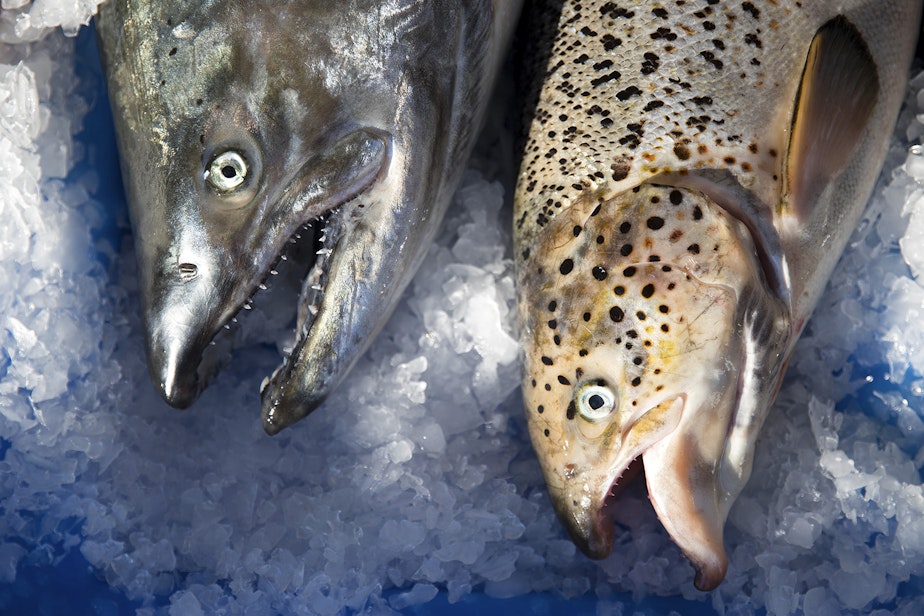Is Washington's east-west divide growing wider?

A group of Washingtonians thinks there’s a simple solution to the problem of our local orca whale populations dying. Orcas need more salmon to survive, and dams are bad for salmon. So why not get rid of the dams and let more water through?
It might seem like the answer to those who live on the west side of the Cascades. But is it really that simple? That's the question reporter Ron Judd asked in his latest article for the Seattle Times.
Judd says in reality, the issue is much more complex.
“I think people on the east side get that the orca problem is a very complicated one," Judd said. "They see that there's a lot of complicated parts to this. Maybe getting rid of the dams is part of a solution down the road, but we need to think about what it means if we decide to take that action. For many, it’s their livelihoods."
There are four federal dams in southeastern Washington. Judd says many families who have lived in the Tri-Cities for three generations or more depend on those dams for their livelihood. He says the area is rapidly growing with a very diverse economy.
“That's their landscape and their world and it's been that way since the 1950s for the most part," Judd said.
Proposals to breach or remove the dams could be detrimental to the area farmers, Judd said. And a large part of the economy in southeastern Washington is agricultural. It’s one of the most productive and fertile growing parts of the world. Much of the grain that’s grown is moved by barge down the lower Snake River to the Tri-Cities. From there it’s either moved by rail or barge down to Portland, Oregon or Vancouver, Washington for international shipping.
“The farmers sketched out some figures based on their current information and said taking out those dams to basically float that grain down river would double their production costs, which would force a lot of them out of business,” Judd said.
There are many other industries in the area that benefit from the dams, according to Judd. Getting a firm number on how many jobs would be impacted with the removal of the dams is difficult, but people involved in economic development around the Tri-Cities claim that there are about 15,000 jobs that depend on the dams.
Judd said there’s resentment among people in eastern Washington that plays into the broader issue of an urban-rural divide between the two sides of the state. He thinks it’s becoming more pronounced and seems to be mirroring what's happening nationally.
“I think people on the east side resent the fact that when big decisions are made on public policy they find themselves in an increasingly smaller minority," Judd said. "That gap is growing, not getting less."
In the Tri-Cities, people who rely on the dams blame activists on west side of the state for what they claim as a simplistic argument based only on wild salmon and environmental issues. Residents near the dams argue that there's not a lot of concern on the activists’ part for the people who are at the other end of the equation.
Judd found in his interviews in eastern Washington there was not a lot of trust that the plan would actually go through. It would be tough, he said, to hand a check to somebody who's a third- or fourth-generation farmer, or someone whose family has been involved in the shipping industry for years, and say, "Sorry, you've lost your job, good luck."
There are sound arguments for and against removing the dams, Judd asid.
“But I hope that if we as a society decide to do it, we do it with a very clear idea of exactly what that means in human terms," Judd said.




